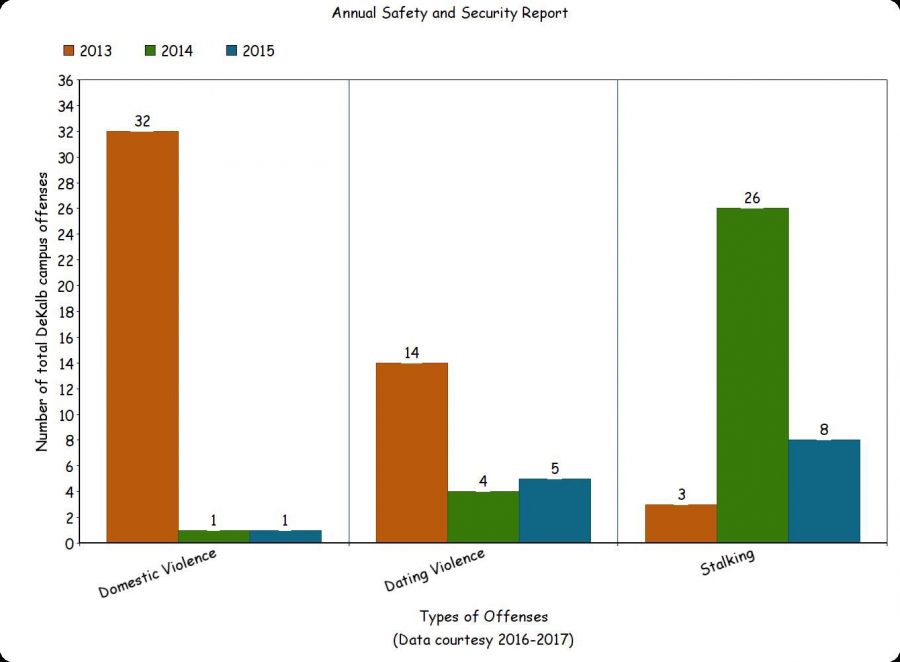Campus reacts to Title IX changes
September 28, 2017
DeKALB — NIU officials have been left wondering about the future of Title IX after the U.S. Education Department formalized the rescinding of guidelines for the handling of campus sexual assaults Friday.
Title IX, a federal law passed in 1972, provides students with protection from being discriminated against based on sex or gender; sexual assault and harassment fall under the legislation. Changes announced by U.S. Education Secretary Betsy DeVos during a Sept. 7 speech at George Mason University state the complaint process will now require a higher standard of proof of wrongdoing.
Karen Baker, NIU Title IX Coordinator, said NIU will “stay the course” with the guidelines formerly in place because of the outlook of state officials and acting President Lisa Freeman. Baker said DeVos is ill-motivated in making the changes, which adds to the lack of desire to adhere to new changes.
“She is trying to remove this for political reasons; schools have benefitted from the oversight,” Baker said.
Former President Barack Obama’s administration created new guidelines for universities’ handling of sexual assault with the 2011 release of the “Dear Colleague” letter, which the Trump Administration will now withdraw.
DeVos takes issue with the letter’s changes that require a lower standard of proof of assault or harassment, similar to other types of civil rights cases.
Along with changing the standard of proof, the revisions added sexual assault to the classification for sexual discrimination, which DeVos disputed.
DeVos said the Obama-era revisions created a system of turning “a survivor into a victim,” which she dubbed a failure of the guidelines. She also said Title IX provisions do not provide any protection to the accused.
“Washington dictated that schools must use the lowest standard of proof,” DeVos said in the speech.
DeVos said campus officials in charge of handling university Title IX cases may not have any “legal training in adjudicating sexual misconduct.”
Baker said this claim is faulty, as she and her colleagues are familiar with the law.
“I am an attorney, and we are all attorneys here,” Baker said. “Her claim overlooks the fact. Universities across the country want most people on their team to have a civil rights background. Law degrees are preferred.”
Baker said administrators have been more cooperative and investigations have been more comprehensive as a result of the changes. NIU officials saw between 125 and 142 Title IX complaints last semester, Baker said.
“Universities across the country were able to understand better their roles in preventing sexual assault. It made our role clearer,” Baker said.
Junior communications major Kourtney Kurps said she found DeVos’ plan worrisome.
“As a woman student, [sexual misconduct] is something that I would want to know is going on on campus,” Kurps said.
Baker said the sweeping changes over one issue are damaging.
“Nobody is going to think that their punishment is fair,” Baker said. “[DeVos] wanted to address the one issue by dialing the whole situation backwards — [like saying] ‘I’m going to fix it by eliminating it’ — and that is not how this should go.”







